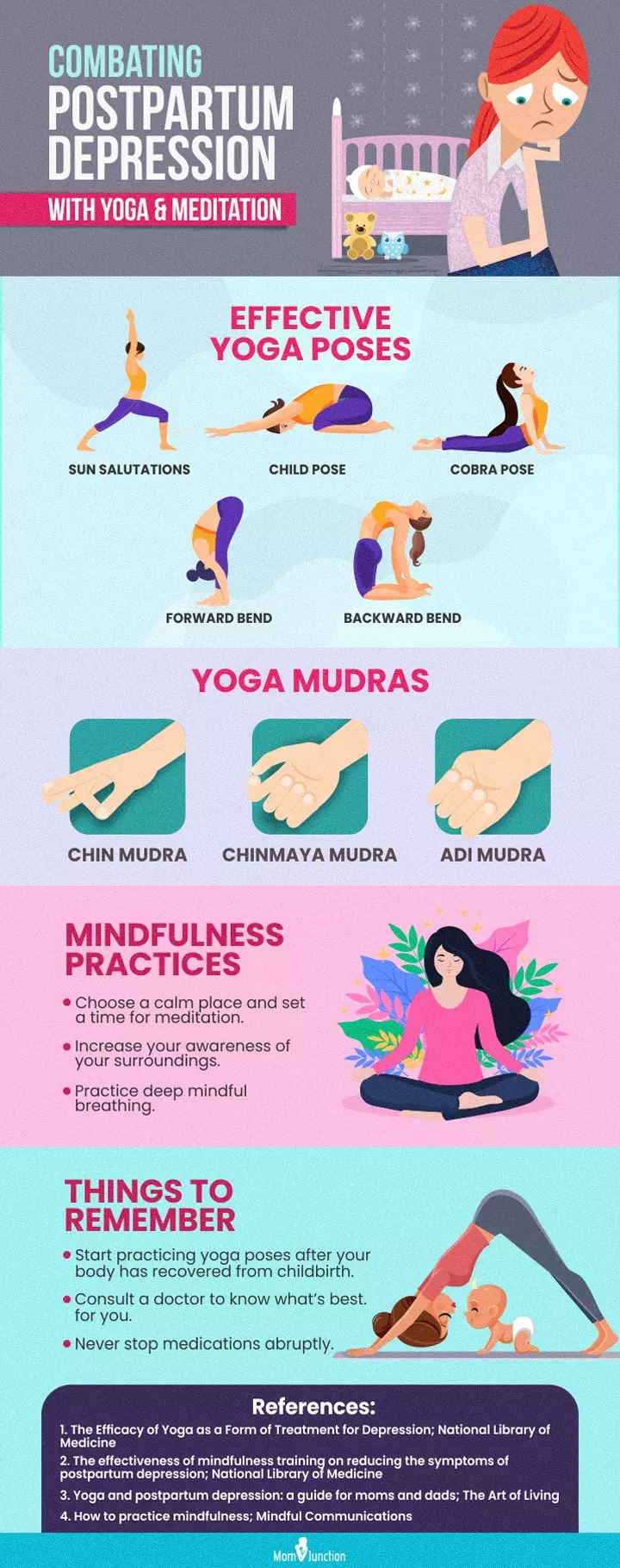
A baby’s birth opens the horizons for overwhelming responsibilities such as taking care of and feeding a newborn. However, the stress of it all could lead to mental health issues in new moms. In such scenarios, some women may resort to medications such as Zoloft while breastfeeding to help deal with their condition.
Zoloft is an anti-depression drug known for treating mental health conditions such as anxiety and depression. When taken in a prescribed manner, this medication helps control depressive symptoms and mood disorders and aids in returning to one’s everyday lifestyle. However, not all drugs are safe to use without consulting a doctor when breastfeeding.
If you have concerns about taking Zoloft when breastfeeding, read on to understand the safety concerns and other details regarding consuming this medication while breastfeeding.
Key Pointers
- Zoloft is a commonly used antidepressant for treating conditions such as OCD and PTSD.
- When suggested by a medical expert, taking Zoloft during breastfeeding is safe.
- Only a negligible amount of Zoloft is transferred into breast milk, making it safe for breastfeeding babies.
- However, some women may experience side effects while breastfeeding.
- Alternative methods for managing postpartum depression include exercise and a nutritious diet.
What Is Zoloft (Sertraline)?
Zoloft (Sertraline) falls under the group of Selective SerotoniniA molecule secreted in the brain that transports messages from nerve cells and helps regulate mood, sleep, and appetite Reuptake Inhibitors (SSRIs), which are medications used to treat depression. The medication controls serotonin levels in the brain. The antidepressant regulates the chemical balance to keep you calm and composed.
The prescribed medication, Zoloft, treats numerous mental disorders such as:
- (Anxiety disorder X) postpartum depression (PPD)
- Obsessive-compulsive disorder (OCD)iA mental health condition distinguished by recurring, unwanted thoughts and behaviors
- Post-traumatic stress disorder (PTSD)iA mental disorder experienced by an individual following traumatic or terrifying life events
- Premenstrual dysphoric disorder (PMDD)iA disorder characterized by intense mood swings, anxiety, and distress before menstruation in females
The drug helps in improving mood, appetite, sleep, and energy levels. All these help rekindle your interest in other daily activities. The medication effectively treats unwanted thoughts, negative feelings, and fear.
 Caution
CautionIs Zoloft Safe While Breastfeeding?

Yes, most medical practitioners prescribe Zoloft while nursing as it is a safe antidepressant medication. The active ingredient of the effective antidepressant, Sertraline, is usually low in breast milk compared to other SSRIs and antidepressants. Thus, the ingested amount by the baby is very low and is often not detectable in infant serum.
When the nursing mother consumes the drug, Sertraline is metabolized to norsertraline (demethylsertraline). Norsertraline has about 10% more antidepressant activity than that of sertraline. The weakly active metabolite norsertraline can be detected in the infant’s serum in low levels.
According to a research study, Zoloft was found to have a low and significant transfer rate into breast milk (1). About 0.5% of the average or standard weight-adjusted dose of the drug was found in the breast milk. In a study conducted on 11 mothers on Zoloft, no drug traces were detected in the milk of seven mothers, while it was minimal in others. The infant’s serum showed no detectable traces of the drug. In two other studies, Zoloft was not detected in the plasma of the infants.
Rarely, the drug gets accumulated in preterm infants with impaired metabolic activity, demonstrating symptoms similar to neonatal abstinenceiA condition caused in babies due to withdrawal of certain medications that they were exposed to in the mother’s womb . Therefore, the doctor will weigh the potential benefits and risks to the nursing infant before prescribing the drug.
Zoloft Implications While Nursing

Some side effects are associated with Zoloft while taking the medication or when stopping it. A study showed the delay in the onset of lactation when mothers use the drug. This could delay breastfeeding in infants. Automatically, the baby’s weight would reduce, thus resulting in the mother’s depression. Once lactation is established, Zoloft may not affect a mother’s ability to nurse.
However, there are no long-term negative effects of the drug concerned with breastfeeding infants. Consult your pediatrician immediately in case of any adverse effects. Alternatives for Zoloft when breastfeeding include Nortiyptyline or Paroxetine.
A study was done to test how Zoloft and milk supply works. There was a decrease in the milk supply in six patients who were on sertraline. One mother reported an increase in the milk supply after stopping sertraline for a week at four months postpartum. She was on the drug since the sixth month of pregnancy (2). If you observe any decrease in the breast milk supply, visit your doctor immediately.
Effects In Nursing Infants

Most studies reveal Zoloft has no adverse effects on infant development if a mother consumes this during breastfeeding (3).
- Two side effects, possibly because of the drug, were reported to the Australian Adverse Drug Reaction Advisory Committee. They are benign neonatal sleep myoclonusiA self-limiting sleep-related condition in babies characterized by rapid, repetitive jerks that cease on arousal from sleep in a four-month-old and agitation in another infant.
- An uncontrolled online survey of 930 nursing mothers on the antidepressant, revealed that 10% of nursing infants exhibit drug discontinuation symptoms like low body temperature, irritability, uncontrollable crying, and eating and sleeping disorders (4). It was more evident in babies of mothers who took antidepressants only during breastfeeding, compared to the mothers who took the drug in pregnancy and lactation.
- Some studies say that taking antidepressant in pregnancy could lead to autism spectrum disordersiA group of neurological and developmental conditions that affect the way a person grasps things, communicates or behaves in general in children. It is an indication that prenatal exposure to antidepressants is linked to a greater risk of autismiComplex disorders leading to neurological and developmental delays (5).
Best Time To Nurse If Mother Is On Zoloft
The timing of Zoloft intake affects its levels in breast milk, so it is recommended to breastfeed an hour before taking the pill. If your baby sleeps through the night, nurse them before bedtime and then put them to sleep. As per a 1997 American Journal of Psychiatry survey, Zoloft would peak in the mother’s milk seven to ten hours after ingestion.
Other Ways To Manage Postnatal Depression
Relying on drugs like Zoloft to deal with postpartum depression is not the solution. Adopt more natural ways to deal with it.
Seek help: Do not hesitate to ask for help from people around you to take care of your baby. Have an open communication to resolve the problems. Opt for self-help, talking therapies, cognitive behavioral therapy, interpersonal therapy, and others.

Workout: Regular exercise would help to relieve depression. Take expert advice on what exercises you can use. You can make out the difference!
Food: Check for nutrient deficiencies in diet. Nutrients like Omega-3 fatty acid and Vitamin B are essential for health. Check out for iron deficiency as well. Healthy, nutritious food is a pathway for good physical and mental health.

Frequently Asked Questions
1. How long does Zoloft stay in breast milk?
The half-life of Zoloft (sertraline) in breast milk is approximately 26 hours, which means it takes approximately 26 hours for half of the drug to be eliminated from breast milk. However, the amount of Zoloft present in breast milk can vary depending on the individual woman’s metabolism and the timing of the dose relative to breastfeeding (5).
2. Can Zoloft cause diarrhea in breastfed babies?
Zoloft can induce nausea, dry mouth, and diarrhea. There have been some reports of diarrhea in breastfed infants whose mothers were taking Zoloft (sertraline). However, the overall risk of diarrhea in breastfed infants exposed to Zoloft through breast milk is considered low (6).
3. How much Zoloft is safe while breastfeeding?
A 25mg dose for about a week is considered safe (7). However, it is always best to consult your doctor for a detailed examination and review of your health condition.
Hopefully, this post may have clarified your doubts regarding Zoloft and breastfeeding. Since Zoloft may not pass on to the baby through breast milk, doctors may recommend Zoloft while breastfeeding. However, Zoloft may result in decreased milk production in some mothers. Hence, if you notice that your milk supply has reduced after the intake of this medication, consult your doctor. They might suggest alternative medicines or other non-invasive techniques, such as a few changes in lifestyle. You may also seek the combined help of a doctor and lactation consultant to know the suitable time for taking the pill such that it may not impact your feeding and milk supply.
Infographic: How Yoga And Meditation Reduce Medication Needs For Postpartum Depression
Scientific studies have found Yoga and mindfulness practices effective in reducing postpartum depression. However, that does not mean that you may do away with the medications prescribed to you for depression. These practices act as an adjunct therapy to support the medications and help you get the maximum benefit from a particular dosage. The infographic below presents various ways to achieve the same. Illustration: Momjunction Design Team
Illustration: Is It Safe to Take Zoloft (Sertraline) When Breastfeeding?
_when_breastfeeding_illustration.jpg.webp)
Image: Dall·E/MomJunction Design Team
Are you on antidepressant prescriptions and breastfeeding at the same time? Learn about the risks and benefits of taking antidepressants while nursing your baby with this video.
References
- Jan Øystein Berle and Olav Spigset; (2011); Antidepressant Use During Breastfeeding.
https://www.ncbi.nlm.nih.gov/pmc/articles/PMC3267169/ - Emily Pinheiro et al.; (2016); Sertraline and Breastfeeding: Review and Meta-Analysis.
https://www.ncbi.nlm.nih.gov/pmc/articles/PMC4366287/ - Sertraline (Zoloft®).
https://mothertobaby.org/fact-sheets/sertraline-zoloft-pregnancy/ - Thomas W Hale et al.; (2010); Discontinuation syndrome in newborns whose mothers took antidepressants while pregnant or breastfeeding.
https://pubmed.ncbi.nlm.nih.gov/20807106/ - Sertraline and Breastfeeding: Review and Meta-Analysis
https://www.ncbi.nlm.nih.gov/pmc/articles/PMC4366287/ - Self-limiting diarrhea in an infant exposed to sertraline in breast milk
https://www.ncbi.nlm.nih.gov/pmc/articles/PMC5848419/ - ABM Clinical Protocol #18: Use of Antidepressants in Breastfeeding Mothers
https://www.liebertpub.com/doi/full/10.1089/bfm.2015.29002
Community Experiences
Join the conversation and become a part of our nurturing community! Share your stories, experiences, and insights to connect with fellow parents.
Read full bio of Dr. Priya Shashank
Read full bio of Shivali Karande
Read full bio of Rohit Garoo
Read full bio of Vidya Tadapatri
















